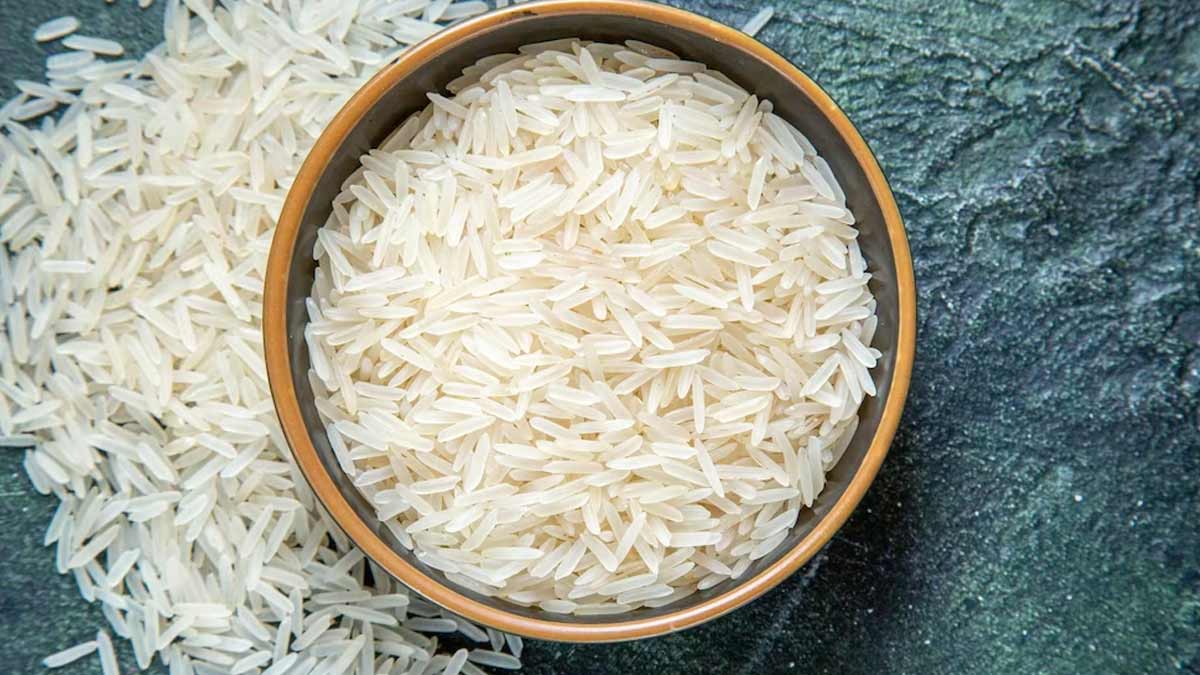
White rice is a staple food enjoyed by millions of people worldwide. While it has faced some criticism due to its high carbohydrate content and low nutritional profile compared to other grains, white rice still offers several essential health benefits that are worth exploring.
Table of Content:-
In an interaction with OnlyMyHealth, Dr Rajesh Ranjan, Dietician and Nutritionist at High Tech Healthcare, Darbhanga Bihar, explained about the health benefits of white rice.
Boosts Energy
White rice is an excellent source of carbohydrates, providing a quick and efficient energy source for the body. Its easily digestible starches are rapidly broken down into glucose, fueling the body and supporting physical and mental performance.
Gluten-Free and Digestive Friendly
For individuals with gluten sensitivities or celiac disease, white rice serves as a safe and nutritious alternative to gluten-containing grains. Moreover, its low fibre content makes it gentle on the digestive system, reducing the risk of gastrointestinal discomfort.

Calorie Control
White rice allows for portion control due to its moderate calorie content. It can be easily incorporated into a balanced diet, providing satiety while keeping caloric intake in check.
Source of B Vitamins
White rice contains essential B vitamins, including thiamin, niacin, and vitamin B6. These vitamins play crucial roles in energy metabolism, brain function, and maintaining healthy skin, promoting overall well-being.
Also read: 7 Health Benefits Of Eating Red Rice
Sodium-Free
White rice is naturally free of sodium, making it suitable for individuals following a low-sodium or hypertension-friendly diet. By combining white rice with other nutrient-dense ingredients, you can create flavorful, heart-healthy meals.
Source of Minerals
While white rice undergoes a refining process that removes some of its natural nutrients, it still contains valuable minerals like manganese, selenium, and magnesium. These minerals contribute to various bodily functions, including bone health, antioxidant defence, and enzyme activity.
Easy to Digest for Sensitive Stomachs
When dealing with digestive issues or during recovery from illness, white rice is often recommended due to its low fibre content and gentle nature. It is easily digested, soothing the stomach and providing necessary nutrients during times of discomfort.
Versatile and Affordable
White rice's versatility allows it to complement a wide range of cuisines and dishes. From stir-fries and pilafs to sushi and rice puddings, it adapts well to various cooking methods and can be tailored to suit different tastes. Additionally, its affordability makes it accessible to a wide range of people.
Gluten-Free Flour Alternative
Ground into a fine powder, white rice can be used to create gluten-free flours. These flours can be utilised in baking to make delicious gluten-free bread, cakes, and other treats for individuals with dietary restrictions.

Also read: Unlocking the Secret To Beautiful Hair: Benefits And Different Ways To Use Rice Water
Cultural Significance and Emotional Well-being
White rice holds deep cultural significance for many societies, symbolising tradition, comfort, and community. Its inclusion in meals fosters a sense of connection and nostalgia, contributing to emotional well-being and positive mental health.
While white rice may have received some criticism in recent years, it is important to recognise its essential health benefits. As a gluten-free, easily digestible energy source packed with B vitamins, minerals, and affordability, white rice plays a valuable role in various diets worldwide. By incorporating it into a balanced and diverse eating plan, you can enjoy its nutritional advantages while savouring the cultural and emotional significance it brings to meals.
Also watch this video
How we keep this article up to date:
We work with experts and keep a close eye on the latest in health and wellness. Whenever there is a new research or helpful information, we update our articles with accurate and useful advice.
Current Version
